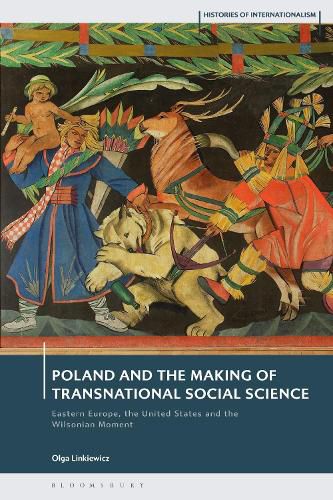Readings Newsletter
Become a Readings Member to make your shopping experience even easier.
Sign in or sign up for free!
You’re not far away from qualifying for FREE standard shipping within Australia
You’ve qualified for FREE standard shipping within Australia
The cart is loading…






This book explores how American internationalism and Eastern European social science influenced and reshaped each other in the 1930s, giving rise to the phenomenon of transnational social science. By tracing interactions between Polish and Jewish scholars and American internationalists, it reveals how politically relevant knowledge-on nations, nationalism, and migration-evolved into the area studies on Eastern Europe that emerged at American universities during the early Cold War.
Following Woodrow Wilson's interest in Eastern Europe, a group of American internationalists-primarily linked to Columbia University, think tanks, and philanthropists-worked to establish a network of experts in the region. In their effort to support peace and democracy, they sought to advance social-scientific knowledge of Eastern Europe's contested borderlands. Poland and the Making of Transnational Social Science explores how interactions between scholars-Polish and Jewish intellectuals and their American counterparts-shaped interwar transnational thought on self-determination, nationalism and national indifference, anti-Semitism and racial exclusion, migration, and assimilation. This knowledge circulation played a key role in the evolution of 1930s social science and its transition into American Cold War area studies.
$9.00 standard shipping within Australia
FREE standard shipping within Australia for orders over $100.00
Express & International shipping calculated at checkout
This book explores how American internationalism and Eastern European social science influenced and reshaped each other in the 1930s, giving rise to the phenomenon of transnational social science. By tracing interactions between Polish and Jewish scholars and American internationalists, it reveals how politically relevant knowledge-on nations, nationalism, and migration-evolved into the area studies on Eastern Europe that emerged at American universities during the early Cold War.
Following Woodrow Wilson's interest in Eastern Europe, a group of American internationalists-primarily linked to Columbia University, think tanks, and philanthropists-worked to establish a network of experts in the region. In their effort to support peace and democracy, they sought to advance social-scientific knowledge of Eastern Europe's contested borderlands. Poland and the Making of Transnational Social Science explores how interactions between scholars-Polish and Jewish intellectuals and their American counterparts-shaped interwar transnational thought on self-determination, nationalism and national indifference, anti-Semitism and racial exclusion, migration, and assimilation. This knowledge circulation played a key role in the evolution of 1930s social science and its transition into American Cold War area studies.